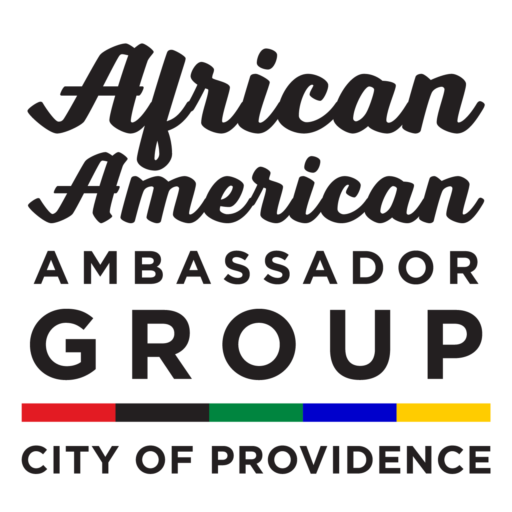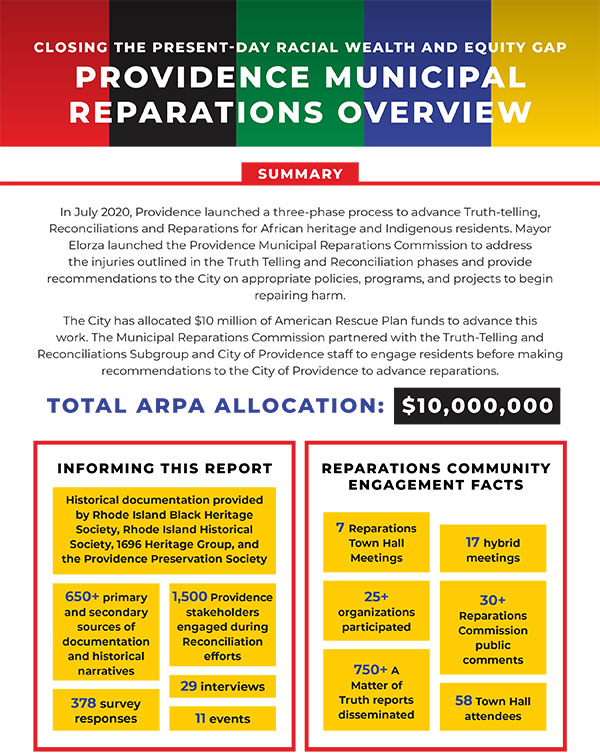Providence Municipal Reparations Commission
On February 28, 2022, Mayor Elorza signed a community-driven Executive Order establishing the Providence Municipal Reparations Commission to address the injuries outlined in the Truth Telling and Reconciliation phases and provide clear recommendations to the City on appropriate policies, programs, and projects to begin repairing harm. The Commission had 13 members, with seven members appointed by Mayor Elorza and six members appointed by the Providence City Council.
Rodney Davis, Chairperson, appointed by Mayor Elorza
Arnell Millhouse, Vice-Chairperson, appointed by Mayor Elorza
Jessica Brown, Commissioner, appointed by Mayor Elorza
Wanda Brown, Commissioner, appointed by Mayor Elorza
Lanre Ajakaiye, Commissioner, appointed by Mayor Elorza
Ray Watson, Commissioner, appointed by Mayor Elorza
Jim Vincent, Commissioner, appointed by Mayor Elorza
Dwayne Keys, Commissioner, appointed by Providence City Council
Kyle Bennet, Commissioner, appointed by Providence City Council
Dewayne Hackney, Commissioner, appointed by Providence City Council
Cristian Potter, Commissioner, appointed by Providence City Council
Michael Costa, Commissioner, appointed by Providence City Council
Phyllis Evans, Commissioner, appointed by Providence City Council
Within the first meetings of the Reparations Commission, members agreed to the following core values: Be bold, center innovation, have impact, be future-facing, transformational, list to each other and the community, be uplifting and center healing.
On August 22, 2022, the Providence Reparations Commission submitted a detailed report to the City of Providence outlining the Commission’s findings, including a series of recommendations to advance reparations, defined by the Commission as “closing the present-day racial wealth and equity gap.” The report follows two years of engagement driven by Mayor Elorza’s community-driven Executive Order committing the City to a process of Truth, Reconciliation, and municipal Reparations for Black, Indigenous People, and other People of Color.
The “A Matter of Truth” report, which informed the recommendations of the Municipal Reparations Commission, described how race-based discrimination such as municipal, state, and federal government-sanctioned redlining, discriminatory employment and housing practices, urban renewal, and interstate highway improvements deconstructed neighborhoods largely composed of people of African heritage and limited-income including Fox Point, Upper South Providence, West Elmwood, College Hill and Lippitt Hill during the 20th century. The Report begins in pre-1600 and concludes with the African heritage legacy continued beyond 2020.
To address the findings from the Truth, Reconciliation and municipal Reparations process, in its report, the Providence Municipal Reparations Commission recommended that the City of Providence and/or external partners implement an 11-Point Investment Plan that advances reparations, defined as “closing the present-day racial wealth and equity gap.” Those recommendations include:
- Recognition of Harm
- Equity Building for African Heritage and Indigenous Communities
- Creation and Development of African Heritage and Indigenous Media, Technology and Communication Companies
- Creation of African Heritage and Indigenous Development Programs
- Review and Reformation of Laws and Policies that Harm African Heritage and Indigenous People and Communities
- Movement Towards a More Equitable Healthcare System for African Heritage and Indigenous People
- Creation of Neighborhood Incubator(s) Focused on African Heritage and Indigenous Communities
- Accelerate the Evolution of the African American Ambassadors Group (AAAG) into an African Heritage Public Policy Institute Model
- Creation of an “African Heritage and Indigenous Survivors and Descendants of Providence Urban Renewal Displacement” Fund
- Expanded Representation of African Heritage and Indigenous People in Governing Bodies
- Expansion of Cultural Engagement and Educational Opportunities for African Heritage and Indigenous Communities
“The Municipal Reparations Commission’s report aims to build an understanding of how the City of Providence’s treatment of nonwhite people evolved, which people and institutions benefited, who was left behind, and how these legacies still influence society today,” said Providence Reparations Commission Chairperson Rodney Davis. “Our recommendations are centered in the objective of moving people, institutions, and businesses in a similar direction towards universal equity. While we recognize that the City alone cannot advance reparations, we hope this report will guide the City in advancing policies and programs to begin repairing harm and that outside institutions will step forward to have maximum impact. On behalf of the Commission, we thank Mayor Elorza and Council President Igliozzi for bringing us together to engage the community and advance this work, and I especially want to commend all Commissioners for their deep commitment over the past few months to this process.”
The full report can be accessed online here.
Check out some of the community engagement facts that helped inform the Reparations Commission Report.
Additionally, public comment was part of the Commission’s public meetings.
For past meeting agendas and minutes, please visit the online Open Meetings portal here and search Providence Municipal Reparations Commission.
To view previous meetings, use the links below:
Frequently Asked Questions
How did the City determine how reparations would be defined?
To help make this determination, the City looked to the Providence Municipal Reparations Commission for their guidance and expertise following significant community engagement and research.
The Commission defined reparations as “as closing the racial wealth and equity gap between Providence residents and neighborhoods.” Read more about the Commission’s definition on page 12 of their report.
How did the City determine who would be eligible for reparations?
To help make this determination, the City looked to the Providence Municipal Reparations Commission for their guidance and expertise following significant community engagement and research.
The Commission adopted four eligibility categories for recommended reparations investments that would most accurately reflect the City of Providence’s unique history and also respond to the residents in the present day with the most measurable need:
- INDIGENOUS PEOPLE – People who are a part of social and cultural groups that share collective ancestral ties before the European settlement of Providence and Rhode Island, including the natural resources where they live, inhabit, or from which they have been displaced.
- AFRICAN HERITAGE PEOPLE – An ethnic group consisting of people with ancestry originating from sub-Saharan Africa. Today, the city’s African heritage residents include, but are not limited to, African American, African, Bi-racial, Afro-Latino, Cape Verdean, and Afro-Caribbean.
- QUALIFIED CENSUS TRACTS & NEIGHBORHOODS – Under the final U.S. Treasury ARPA rule, recipients of funding “were allowed to presume that families residing in Qualified Census Tracts (QCT) or receiving services provided by Tribal governments were disproportionately impacted by the pandemic.” Providence QCTs eligible for these programs include Upper and Lower South Providence, Washington Park, Mount Hope (Lippitt Hill), Olneyville, Fox Point, Hartford, Elmwood, Smith Hill, Wanskuck, and Manton.
- RESIDENTS FACING POVERTY – Providence residents/households earning less than 50% of the Area Median Income that are considered to be very low-income. Preference given to residents/households earning less than 30% of AMI who are considered to be extremely low-income households. Individuals who are eligible for programming include:
- Residents who were born in the City of Providence or,
- Non-College students who have lived in Providence, Rhode Island for a minimum of three (3) years or,
- For people who moved to Providence to attend a college or university, three (3) years from the last date of enrollment.
Will reparations include direct cash assistance/payments?
Direct cash payments were not recommended as one of the 11 investment strategies to close the racial wealth and equity gap.
How was the community involved in this process?
Community engagement was a critical factor informing reparations work. Throughout the process, the City and/or the Providence Municipal Reparations Commission and/or the African American Ambassadors Group:
- Hosted seven Reparations Town Hall meetings, with nearly 60 attendees
- Hosted 17 hybrid meetings
- Involved more than 25 organizations in the process
- Received more than 30 public comments regarding reparations
- Disseminated more than 750 copies of “A Matter of Truth”
Can you tell me more about the Providence Municipal Reparations Commission members?
The Commission had 13 members, with seven members appointed by Mayor Elorza and six members appointed by the Providence City Council. Collectively, Commissioners have over 400 years of combined experience either living or working in the City of Providence which is important to note when considering recommendations within the Reparations Report.
Meet our Commissioners!
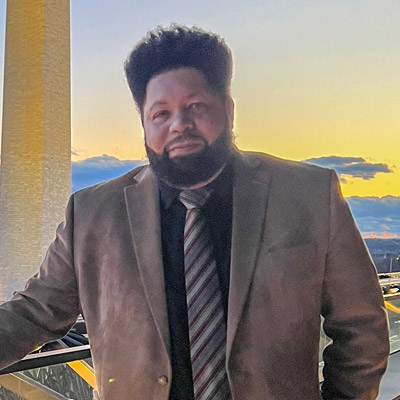
Rodney Davis, Chairperson
he/him/his
Rodney Davis is a communications, marketing, events strategist, lgbtqia/social justice/human and civil rights activist, and artist who was born and raised in Newport. In the early 1990s he left Newport to begin a new life in Providence after being disfellowshipped from the ministry with Jehovah’s Witnesses. It is here where he began his work as a social justice and civil rights activist. Rodney had the privilege to serve as President and VP of the RI Alliance which led the charge for LGBTQIA+ civil rights. He previously served 20+ years as co-chair and then president of Rhode Island Pride and was then tapped to lead the organization again in 2021. Davis is an active member of the Providence AAAG and recently was a co-facilitator/artist for the All Black Lives Matter mural in Kennedy Plaza. He is a graduate of College Unbound where he was a Diversity Leadership Scholar and a graduate of the Alpha II class of Leadership Rhode Island.
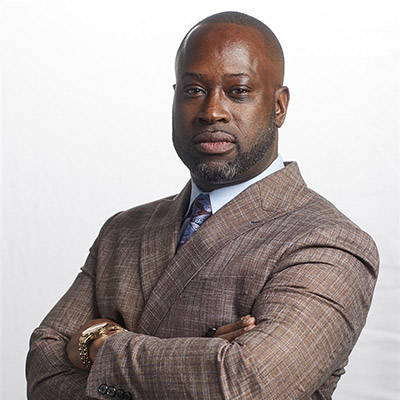
Idrees “Lanre” Ajakaiye
he/him/his
Lanre was born and raised in Providence, Rhode Island. He is a graduate of Classical High School, the University of Rhode Island Talent Development Program and MBA graduate of Boston University. His corporate background spans over 15+ years of success building sales divisions at real estate startups in NY, marketing, and contact center leadership responsibilities for international and domestic teams. He is a 2021 Who to Watch Providence Monthly Honoree and a 2022 MLK City of Providence Hall of Fame Inductee. Most recently, Lanre has quietly served on the African American Ambassador Group since the beginning as an integral part of the team which helped to reignite the removal of the Plantations name at the city level moving on with success to the state. Currently, he is the CEO of 25 Bough Street, a mixed use, commercial development to empower the community in the heart of Olneyville, Providence, Rhode Island.
Why did Lanre join the Providence Reparations Commission?
Systematic racism across housing, education, real estate and employment, mental health, wellness and more have ravaged the lives of BIPOC communities. Furthermore, dramatic wealth and educational gaps persist and are growing. The aforementioned arise from the detrimental impacts rooted and placed in motion by slave systems which still affect the current state progression, attainment, achievement and fulfillment. The current data and statistics are clear and much of the history is known; however, there has been a silence and trepidation in corrective movement until now. It is high time for action towards atonement. This is stated with my belief that properly crafted; the atonement will make us a better city, state and nation. We must divert from the easy path which positions that these things happened yesterday, deflect and deny while separating the realities of committed atrocities with some outcomes we see today. This Commission affirms this connection between the past and present. My decision to serve on the Reparations Commission is to assist and play my part in setting the course and recommendations of what some – not all – atonement for the myriad of effects of a slave system that continues to impact many until today. Moreover, we will harness the community voice broadly understanding the criticality of the work and moment. Ultimately, the goal is to help to transform the many impacted lives for a better tomorrow through an unblinded, view of the past.
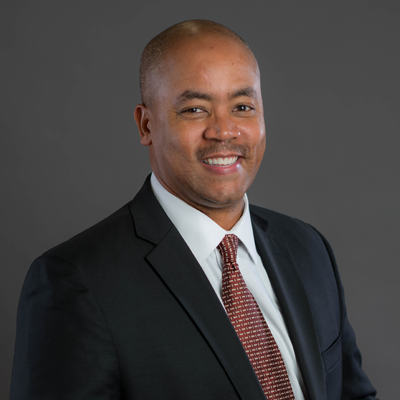
Kyle Bennett
he/him/his
Kyle L. Bennett, a native of Brooklyn, New York, grew up in Providence. He has devoted his personal and professional life to lending his time and talents to serve the Rhode Island community. Kyle is currently the Director of the Public Policy and Equity for United Way of Rhode Island. Kyle manages a team focused on defining challenges for our community and moving equitable policy that addresses the unmet need with an acute focus on Black, Indigenous, People of Color (BIPOC) communities. Kyle’s goal is to create systems that serve the greater good while helping people with immediate needs that have been historically left behind, especially ensuring that all Rhode Islanders have a safe, affordable and healthy place to call home. Kyle attended North Carolina A&T State University and Rhode Island College where he studied Secondary Education, Mathematics. Kyle is married to Eneida Bennett and the proud father of Jenneya Bennett.

Jess Brown
she/her/hers
Jessica Brown is a multidisciplinary spectacle generator, community builder and creative connector creating disruptive & humorous work centered around race, gender and politics. Utilizing a Liberatory Design practice, she curates spaces to bring people together incorporating pop culture references and bright colors- always through a lens of joy to empower, uplift and encourage discourse. She is unapologetically Black. An Assistant Professor in Industrial Design at Rhode Island of Design, she serves on RISD’s board of Social Equity & Inclusion (SEI), and is proud to have been a board appointee to serve on the committee to hire their new President. Within the Providence community she is very active, including currently serving as an African American Ambassadors.
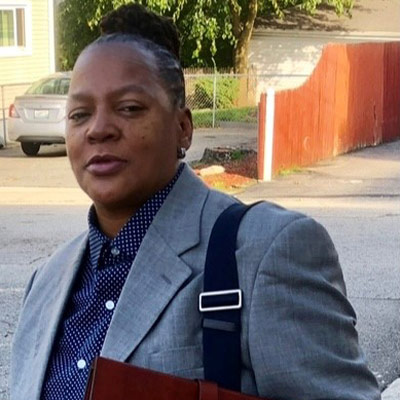
Wanda Brown
she/her/hers
Wanda Brown is a highly regarded lab faculty member at College Unbound at the Providence campus for the past six years. She is successfully in long-term recovery and manages amazing relationships with people in her community being a strong friend and support system. Wanda holds a Masters Degree from Springfield College in Management and Organizational Leadership and Change where she graduated in 2015. She currently leads as a facilitator for the Providence African American Ambassadors Group. Wanda has been extremely active within this group of Black leaders along with their allies in the social justice and reform space on a municipal level for the past two years. Additionally, she works with Black Lives Matter of Rhode Island, is a board member of the LGBTQIA+ organization Rhode Island Pride and is proud to serve as an appointed member of the new Providence Municipal Reparations Commission. Wanda is the proud mom of four adopted and amazing children.
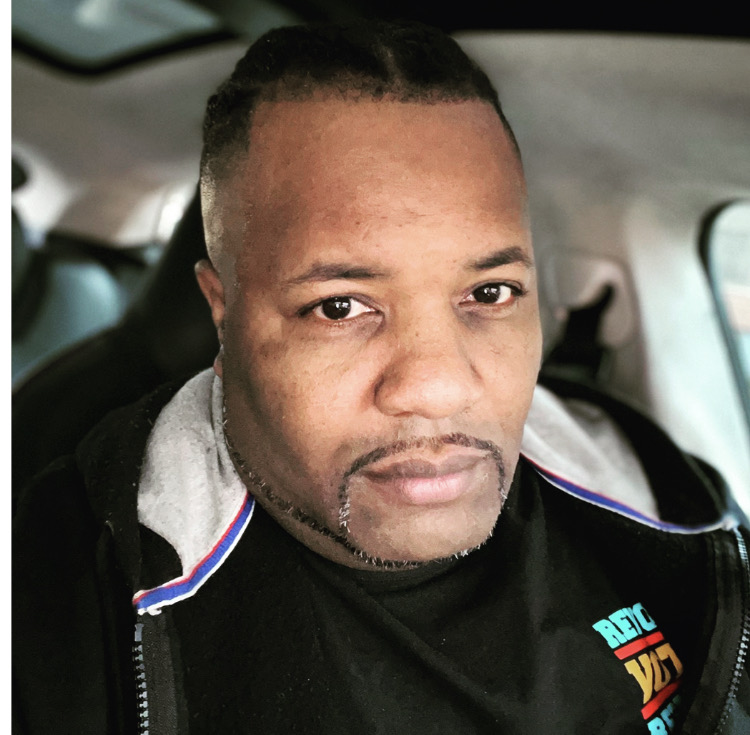
Michael Costa
he/him/his
Michael Costa, also known as DJ Rukiz, started his career as a DJ, entrepreneur and community advocate in his hometown of Providence, Rhode Island. In 2009, driven by the lack of “true” community-based media in the Providence area, Costa founded an internet radio station called “MusicFeen.” This station was completely interactive, allowing viewers from around the world to chat with Providence’s talented DJ’s and personalities. Costa later founded “The Juice Broadcasting Network,” which was branded as the evolution of MusicFeen. Today, Costa is known throughout the world as DJ Rukiz, a reputable master of ceremonies and proud community advocate.
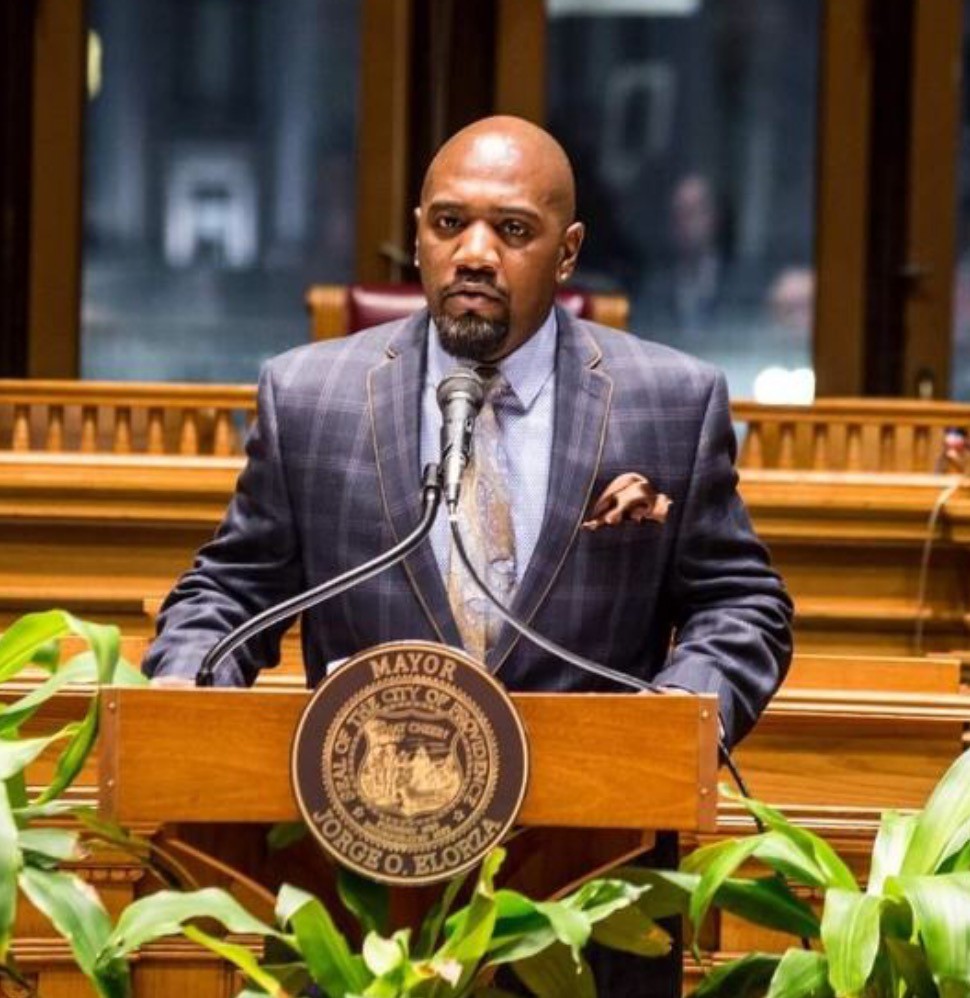
Dewayne Boo Hackney
he/him/his
Dewayne Boo Hackney is a lifelong resident of Providence, RI. He attended both Central and Mount Pleasant High Schools but his formal and most useful education comes from understanding the obligatory charge of advocacy and community service since his teenage years. Dewayne is able to see himself as a sun/son of the city because of his words “as a black boy, he was raised as royalty” by his family and community. He is a licensed professional barber of 28 years and has fortunately given many men their first haircuts, but unfortunately also given some young men their last haircut due to gang violence. This is one of his driving forces behind his decades of advocacy for the Black community and others, as well as conflict resolution/mediation with gang violence. Dewayne is co-founder of The No More March and I.O.U. which stands for It’s On Us, a group of men Muslims, Christians and others who decided to be accountable and take responsibility for the well-being of the city’s youth and the city in general. Dewayne is a full-time employee of the Department of Public Works in the City of Providence although cutting hair is still his first love. He is a member of the NAACP and board member for the Non-Violence Institute. He is a husband married to his high school sweetheart of 32 years, a father, a grandfather, a life-long activist/advocate and a humble, proud bold Black man.
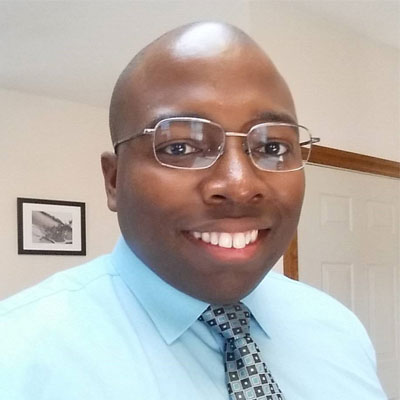
Dwayne Keys
he/him/his
Dwayne Keys has spent over 18 years advocating on behalf of historically excluded & oppressed communities for economic justice & full inclusion in economic prosperity. A 22-year resident of the Southside of Providence, Dwayne is a Financial Coaching Manager with Compass Working Capital, providing financial coaching to families with low incomes in support of them building assets & financial capabilities while also overseeing a team of financial coaches – he’s also an Accredited Financial Counselor® & pursuing certification in Financial Social Work. A graduate of Johnson & Wales University, Dwayne earned his B.S. in Marketing & M.B.A. in International Trade.
Why did Dwayne join the Providence Reparations Commission?
Given his commitment to economic justice for Black people, Dwayne welcomed the invitation from the City Council as their appointee to support the efforts as an additional way of helping families in Providence rise up out of poverty, prevent displacement, & close the racial wealth gap.
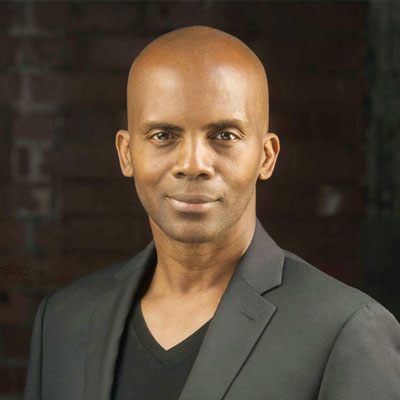
Arnell Millhouse
he/him/his
Arnell Milhouse is a tech community influencer, cryptocurrency investor and co-founder of CareerDevs Computer Science Academy and IntraCity Geeks. His non-profit teaches rigorous computer science at the K-12 level and has a mission to disrupt income-inequality for those in under-served and under-skilled communities. Arnell is also an Entrepreneur in Residence at the Brown University, Nelson Center for Entrepreneurship and serves as an advisory board member at the philanthropic organization created by Barbara Papitto.
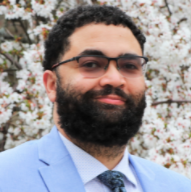
Cristian Potter
he/him/his
A Southside alumni
A data enthusiast
A Black Activist
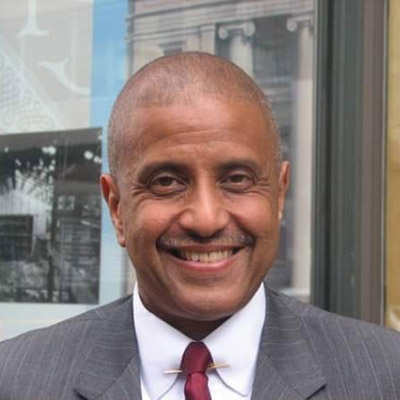
James “Jim” Vincent
he/him/his
Since 2011, Jim has been the president of the NAACP Providence Branch. For the past 10 years, Jim has also been a member of the Cape Verdean Progressive Center. Professionally, he has worked at RIPTA since 2013 first serving as the Civil Rights Compliance Officer and currently serving as agency’s Outreach Officer. Previously beginning in 1990, Jim worked 22 years in housing, first as the East Providence Housing Coordinator and later the Manager of Constituent Advocacy at Rhode Island Housing Authority. Jim holds a BA in Government from Dartmouth College and a Masters in City Planning from the University of Pennsylvania.
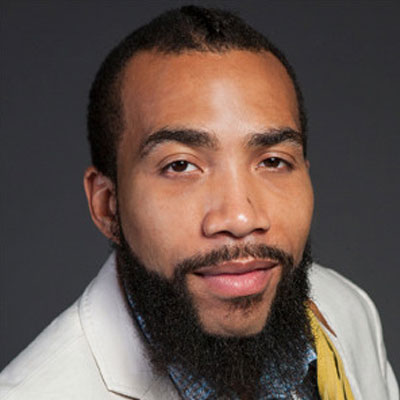
Raymond Two Hawks Watson
he/him/his
Raymond Two Hawks Watson is an Artivist, Community Activist, Educator, Cultural Practitioner and Convener with 10 years of experience in nonprofit executive administration. Watson’s skills consist of program development & implementation, grant writing, motivational speaking, leadership & cultural development consulting, community organizing and event planning, supplemented by an extensive background in promoting and supporting cultural equity & development initiatives and programming in the Rhode Island community. Watson is the recipient of the Rhode Island Foundation’s 2016 Innovation Fellowship.

